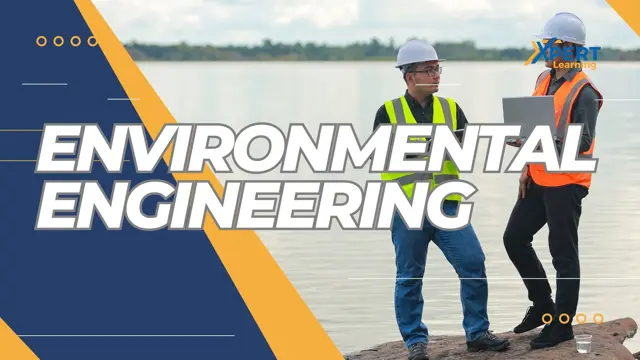
Environmental Engineering
Diploma in Environmental Engineering | Premium Audio Visual Leasons | Expert Instructor Guidelines | 100% Success Rate|
Xpert Learning
Summary
- Reed Courses Certificate of Completion - Free
- Tutor is available to students
Add to basket or enquire
Overview
The "Environmental Engineering" course provides a comprehensive insight into the innovative field of integrating engineering principles with environmental protection. From delving into the foundational chemistry and microbiology to addressing contemporary challenges like air pollution and waste management, this course exemplifies the multifaceted realm of Environmental Engineering.
Job Goal:
Junior Environmental Engineer: Freshly ingrained with Environmental Engineering knowledge, beginners in the UK might anticipate a salary ranging from £27,000 to £35,000 per annum.
Environmental Engineering Analyst: With adept application of Environmental Engineering principles, such roles can command between £38,000 to £52,000 annually.
Environmental Engineering Specialist: Being a pivotal figure in spearheading Environmental Engineering projects, earnings might oscillate between £57,000 to £80,000.
Course media
Description
Environmental Engineering stands at the crossroads of innovation and sustainability. Launching with a foundational overview, this course acquaints participants with the very essence of Environmental Engineering. Venturing further, the course sheds light on the fundamental principles of environmental chemistry and microbiology, which lay the groundwork for advanced Environmental Engineering practices. As the curriculum unfolds, learners gain proficiency in water and wastewater treatment, acquiring skills essential for today's sustainable development. Addressing the pressing concern of air pollution, the course equips participants with state-of-the-art control techniques. Solid waste management, a paramount facet of Environmental Engineering, concludes the course, ensuring learners are aptly prepared to address both conventional and emerging environmental challenges.
Who is this course for?
- Aspiring engineers keen to merge their passion for technology and the environment through Environmental Engineering.
- Professionals in allied sectors aiming to enrich their expertise with Environmental Engineering know-how.
- Environmentalists looking to gain a technical edge with Environmental Engineering principles.
- Students and educators seeking a structured understanding of Environmental Engineering.
Requirements
You don't need any formal qualifications to enrol in this Environmental Engineering course.
Career path
- Environmental Engineering Consultant: £40,000 to £60,000
- Environmental Engineering Project Manager: £62,000 to £78,000
- Director of Environmental Engineering: £85,000 to £110,000.
Questions and answers
Currently there are no Q&As for this course. Be the first to ask a question.
Certificates
Reed Courses Certificate of Completion
Digital certificate - Included
Will be downloadable when all lectures have been completed.
Reviews
Currently there are no reviews for this course. Be the first to leave a review.
Legal information
This course is advertised on reed.co.uk by the Course Provider, whose terms and conditions apply. Purchases are made directly from the Course Provider, and as such, content and materials are supplied by the Course Provider directly. Reed is acting as agent and not reseller in relation to this course. Reed's only responsibility is to facilitate your payment for the course. It is your responsibility to review and agree to the Course Provider's terms and conditions and satisfy yourself as to the suitability of the course you intend to purchase. Reed will not have any responsibility for the content of the course and/or associated materials.


